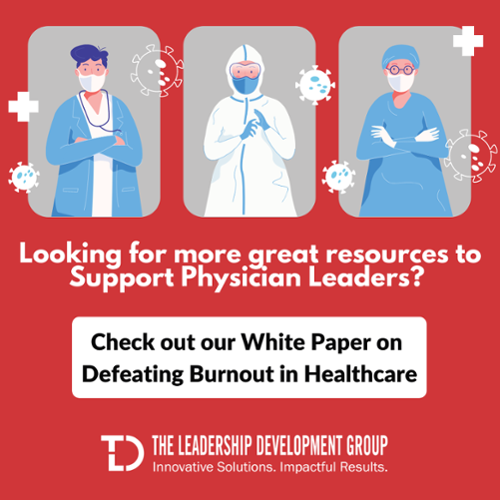Pre-COVID, many of us viewed our primary care, specialist or hospital-based physicians as trusted and skilled professionals in their crisp white coats with the embroidered logos of their practices or larger, parent health system.
Then, in spring 2020, as the World Health Organization declared the coronavirus a worldwide pandemic and in the months to follow, we witnessed our doctors’ real sacrifices and our physicians emerged as our national and pandemic heroes.
From Human to Heroes to Increasing Patient Trust
How many of us can ever forget this Huffington Post report and photograph of a night-shift emergency-care doctor bent and broken, grieving outside a Southern California hospital? The photo was taken by the physician’s EMT colleague and, according to that EMT’s post later on Reddit, the physician had just lost a 19-year-old patient.
The EMT wrote:
“I think people should know that the care providers are just as human as the patients, and this shows that [humanization] stronger than anything I’ve seen in a long while.”
After his grieving, that physician walked back into his hospital to finish his shift.
Or how about this essay from a critical-care physician which gives the American public an up-front sense of the toll the pandemic has taken--not just on frontline providers but also on the doctors’ families?
Additionally, there have been many COVID-era reports on the documented incidences of physician burnout and the challenges of re-aligning care teams, all while also grappling with fragile healthcare industry supply chains. Add to these the fact that, according to the Medical Group Management Association, 97% of PCP and specialty practices suffered a 55% drop in physician practice revenues.
Together, these real-life and public glimpses into our doctors’ medical careers have served to humanize the profession and, in so doing, expand the public’s trust in, and admiration for, our doctors.
Doctors Countering the Infodemic
In its 2020 Infodemic Communications Response Initiative, the World Health Organization (WHO) reported that managing the infodemic is “a critical part of controlling the COVID-19 pandemic.”
While many healthcare providers were grappling with emergent COVID-era crises and care delivery models, they were also navigating the crosswinds of information, opinions and misinformation about the severity, risks and best-practice disease control and treatment protocols. They were also called upon to tell us, the public, how to keep ourselves and our families safe.
How much should we socialize outdoors? What exactly does “social distancing” mean? What fabric should we use in our protective face masks? Should we disinfect our newly-delivered mail, our children’s car seats and our groceries?
On top of the burden of clinical care, think of all the physicians and researchers who took the time away from clinical work to write and publish the evidence-based articles that helped us to distinguish between science-based truth and social-media spread rumors.
For example, in July 2020, when most of us were still scrubbing down our groceries, a virologist at Rutgers University published an article, “Exaggerated Risk of Transmission of COVID-19 by Fomites” in the online issue of The Lancet. His article gave us some research-based facts around the real-life fomite threat (infections spread via inanimate objects such as kitchen counters) and the study’s implications for our home- and school-based infection controls.
In addition to peer-reviewed articles, our physicians added to their public-health stewardship by giving consumer-based media interviews.
Also, as the science behind COVID prevention and treatments evolved in real time, the NIH published and re-published its most recent research-supported COVID treatment guidelines, as sanctioned by the Institute’s physician-led and populated Treatment Guidelines Panel.
Doctors Advocating for Equitable Healthcare Delivery and Social Justice
As COVID-19 continues to disproportionately devastate lower-income groups and communities of color, many physicians and physician organizations are advocating for social, psychosocial, criminal justice, and economic change that impact patients’ lives and their ability to provide best-practice medical care.
The American Association of Family Physicians (AAFP) issued a member survey that revealed that 85% of surveyed physicians believe that social needs are directly related to poor health. Also, 80% of the survey’s responding doctors are not confident in their ability to address their patients' social needs.
In response to these findings and an AAFP Congress of Delegates resolution, the Association formed the Center for Diversity and Health Equity. As part of the Center’s work, they launched the EveryONE project. The project provides a variety of relevant, evidence-based education and resources, including a point-of-care toolkit and an Advocacy page to empower physicians to advocate for more equitable policies.
Medical colleges and students are also addressing inequities and medical bias via organizations such as WhiteCoats4BlackLives, which works to heighten awareness of racism as a public health concern, ending racial discrimination in medical care, while equipping future physicians to be advocates for racial justice.
In its letters to the American Centers for Medicare and Medicaid (CMS), the American College of Physicians, the largest medical-specialty organization and the second-largest physician group in the U.S., urges CMS and U.S. lawmakers toward more legislation that will support and address vulnerable patients’ needs and the physicians’ own need for post-COVID behavioral health supports.
Now, as the 2021 vaccination process rolls out across the country, many physicians of color have reached out to their own communities and engaged in effective public service announcements to offset some of the vaccine hesitancy and historically-bound distrust that prevent some Black, Latina and rural patients from registering to receive one of our approved COVID vaccines.
Conclusion
Last year, in a KevinMD article, Dr. Alejandro Badia, an orthopedic surgeon, called upon his medical colleagues to stand up to “the growing bureaucracy in the system,” in order to expand the physician voice in healthcare and policy advocacy.
Dr. Badia writes: “The change will be long, slow, and painful, but we can’t allow the system to continue to swallow us whole. The change must come from us.”
Based on doctors’ professional and personal sacrifices, their contribution to the data and literature on infection control, and their tireless public health stewardship, we know that our physicians can and will use their newly amplified voice to make American healthcare better.
Our COVID-19 experiences have reinvigorated the role of physicians as stewards of public health. Going forward, we must continue to look to physicians and the healthcare profession as a whole to lead us out of this global pandemic and protect us from future pandemics. As stewards of public health, we must rely on them – trust them – to do their life’s work of providing humane and compassionate care, accurate and timely information, as well as equitable delivery of stellar service to their communities. These tasks require all of us to advocate for the necessary resources (financial and otherwise) to achieve equitable health outcomes for all.




